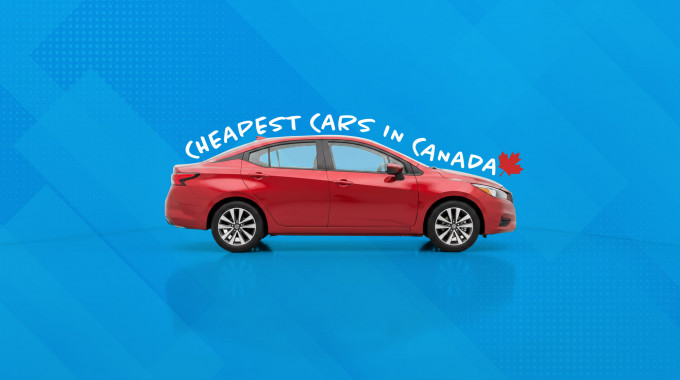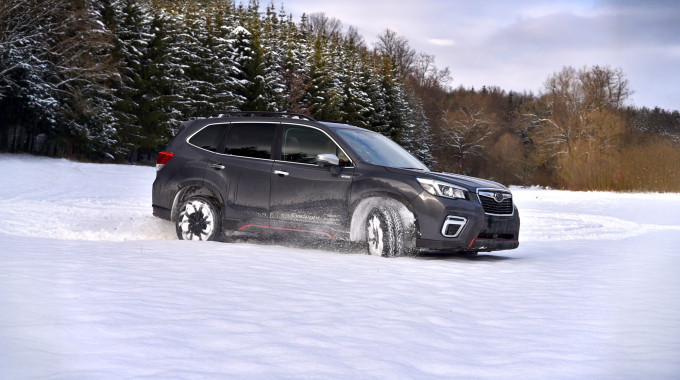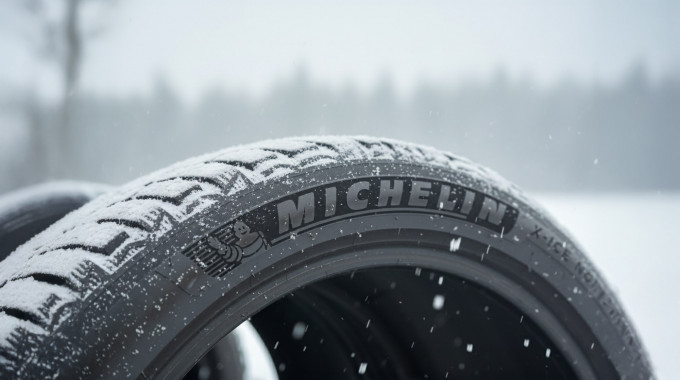
Are Certified Pre-Owned (CPO) Cars Better than Regular Used Cars?
Buying a secondhand car instead of a new car is a popular option that makes more sense today than it ever did.
When you consider all of the advantages of buying a used car, you can shop confidently knowing that that there's an extremely robust market in Canada with plenty of reliable options and great savings to be made if you know where to look (and what to look for.)
If you’re in the market for a new (or newer) car, one of your best options might be a certified pre-owned used car. A CPO vehicle is considered to be a “safer middle road” to take when buying used because they’re not as expensive as brand new cars but they tend to be more reliable than non-certified cars.
There are two avenues you can take to a used vehicle; non-certified pre-owned and certified pre-owned.
What Is a certified pre-owned car?
Certified pre-owned (or CPO) cars are vehicles that are gently used, perfectly reconditioned, and warrantied vehicles offered by car manufacturers or dealerships.
CPO vehicles have undergone a rigorous and regulated multipoint inspection process. Each car is required to meet a certain age and mileage limit, which varies by dealership and automaker.
Certified pre-owned vehicles must be in excellent cosmetic condition and be mechanically sound. If there are significant problems to the vehicle, then a car may be rejected for CPO status because it may not be worth the cost to bring it up to standards.
Each manufacturer or dealer has a different set of standards. Many certified pre-owned cars include enhanced and extended warranties and other perks to attract buyers and often include special financing offers. Special offers range from 0% financing for 12 or 24 months, free roadside assistance for a certain period of time, extended warranty, and some even offer OnStar service!
There are two different kinds of certifications for CPO cars: manufacturer and dealer.
What’s the difference between certified pre-owned and non-CPO used cars?
Used cars can be divided into two distinct categories (CPO & non-CPO), and cars that fall into those two categories can be parsed out into four separate buckets:
|
CPO |
Non-CPO |
|
|
|
|
Manufacturer (Factory)
A factory-certified pre-owned vehicle is a car that has been inspected, refurbished, and approved by the manufacturer before it’s sold. Manufacturer-certified cars have met specific requirements backed by the maker of the car. Any repairs are done with factory-authorized parts.
Only franchised dealers can sell factory CPO vehicles. For example, only Volkswagen dealers can sell manufacturer-certified used Volkswagens. If your vehicle is certified by the manufacturer, you’ll usually enjoy vehicle servicing at franchised locations nationwide.
Dealer (Certified)
Dealer-certified cars are authorized by the dealership in accordance with their standards. These cars are selected from the best used cars and are meticulously reconditioned. Dealer-certified cars are not restricted to a specific brand.
Dealer (Non-certified)
It’s important to note that not all used cars that sit on a dealership lot are certified pre-owned. A used car might be automatically disqualified from a CPO program due to its age or mileage. However, these used cars still receive a rigorous inspection and service before being put back on the market. It’s important to remember that a quality used car does not have to be certified pre-owned.
Many non-CPO used cars still have time and mileage remaining on the original basic and powertrain warranties, so you’ll enjoy warranty benefits in a non-CPO vehicle too.
Private sale
It’s safe to assume that used cars sold privately are not certified pre-owned. The buyer runs an extra risk with this kind of sale as there are fewer assurances of quality. With a private sale, you run the risk of getting scammed, getting stuck with a lemon vehicle, or getting a car that’s a danger to drive. The purchaser usually has to pay for an inspection and any repairs themselves.
Are certified pre-owned cars more expensive than non-certified?
Costs can generally range anywhere from $200 to $3,000 extra for a CPO car, but the cost difference isn’t without merit. If a CPO vehicle costs you, for example, $1,000 extra now, you can drive with peace of mind, knowing that you probably won’t have any repairs for a while. And, if you do, it may be covered under warranty.
If you choose a non-CPO car, you might be hit with some kind of repair within weeks of driving it, and the repair could cost you a lot more than $1,000!
Is a certified pre-owned car worth it?
CPO cars typically cost more than non-CPO vehicles, but they provide extra peace of mind that a non-CPO vehicle doesn’t offer. That isn't to say that non-CPO cars aren't worth your attention; there are tons of great used cars that don't have a CPO designation. But remember, a certified pre-owned vehicle is selected for a manufacturer or dealership's program because of its low mileage and already-pristine condition. These cars are already in excellent shape before being put through a thorough inspection and servicing. Many CPO vehicles also come with an extended warranty, low-interest financing offers, and extras such as roadside assistance and free maintenance.
Looking for a great deal?
Canada Drives can get you pre-approved for your next car loan and connect you with a local dealership who will show you a selection of cars you already qualify for. Get pre-approved in 3 minutes and see what great deals you're eligible for!
The pros & cons of certified pre-owned cars
| PROS | CONS |
|
|
What to look for in CPO programs
Be your strongest advocate by being educated when walking into a dealership for a CPO vehicle. Make sure to ask about the list of key inspection points.
This inspection list should include:
- Road testing (drive axle, clutch, steering, brakes/ABS, transmission shift points and gauge operation)
- Bodywork (frame damage or accident repair on the exterior, and airbags and dash lights on the interior. Don’t forget to ask if the previous owner was a smoker if that is a point of contention for you).
- Brake system (rotors, pads, hydraulics, and callipers)
- VIN details (recalls, emissions requirements, code issues)
- Powertrain (compression reading, timing belt, leakages)
You should also be mindful of what’s included in the warranty, and what kind of add-on coverage you can get. But first, a quick word about warranties...
A quick word about CPO warranties
Before we get into the difference between certified warranties and extended warranties, here’s a quick refresher about the most common types of warranty coverage that come with new and used vehicles.
A powertrain warranty covers important components such as your engine and transmission.
As you might guess from the name, a comprehensive warranty, sometimes referred to as a “bumper-to-bumper” warranty is more comprehensive than a powertrain warranty. Besides internal components like the engine and transmission, a bumper-to-bumper warranty covers electronics, air-con, suspension, and more.
Wear items such as the tires, clutch, battery, brakes, and drive belts are not included in the powertrain or bumper-to-bumper warranty, so be mindful of that.
What's the difference between certified and extended warranty?
When you buy a car brand new, it tends to come with standard warranty protection in case you ever experience defects. However, when that car is ready to be resold, the warranty protection may be expired.
A certified warranty is the updated standard warranty that comes with a factory-backed CPO vehicle. An extended warranty is add-on protection that you can get for almost any car on a dealership’s lot. Extended warranties are available from automakers and third-party vendors.
With factory-backed CPO vehicles, warranties are renewed and certified by vehicle manufacturers. Therefore, factory CPO cars tend to come with the most extensive warranty coverage. It varies from automaker to automaker, but this comprehensive warranty coverage includes powertrain coverage.
For dealer-certified cars, any transferable standard warranty will be included. You can also obtain extended warranty coverage. The same goes for a dealership’s non-certified cars; warranty protection is not included unless there is already an existing standard warranty, but there is often extended warranty coverage you can purchase from the dealer or a third party provider. The level of extended warranty coverage can vary and are priced accordingly.
The important takeaway here is that you don't need to buy a factory-certified pre-owned car to get a used car with a warranty. Most dealerships will add a warranty with almost any vehicle.
With private sales, you’re getting an out-of-warranty vehicle or whatever time is left on the original warranty. You will not benefit from a dealer-backed or manufacturer-backed certified or extended warranty unless the existing warranties are transferable.
Is it possible to lease a certified pre-owned car?
Yes. You can lease certified pre-owned vehicles, but they can be harder to come by than brand new car leases. Monthly payments tend to be lower than leasing a brand new car for the same term length. However, you usually must have good credit if you want to lease a used car.
Is it possible to finance a CPO vehicle?
Yes. As with leasing, monthly payments on a CPO vehicle typically tend to be less than a brand new car. Since certified pre-owned cars are only available through dealerships, you'll be able to apply for finance at the dealership.
Trusted CPO partners in Canada
CARFAX Canada is considered an authority in Canada’s CPO programs as they provide free vehicle history reports which include registration, odometer readings, police data, accident data and a lot more.
Many manufacturers trust CARFAX to provide accurate and comprehensive information on their vehicles, including Toyota, Volvo, Porsche, Nissan, Mercedes-Benz, Honda, GM Canada, Acura, Audi, BMW and more. That said, it’s important to note that even if a car has a clean report from a company like CARFAX, it doesn’t mean it hasn’t been in an accident. Sometimes, accidents and repairs go unreported, so research and thorough inspection are extremely important!
Get pre-approved for a certified pre-owned vehicle today
Canada Drives can help you get pre-approved for a car loan online, so you know exactly how much financing you can get before you start car shopping.
It only takes a few minutes to complete the easy application and is available regardless of your credit.
Get pre-approved today and see what great CPO deals you're eligible for!







